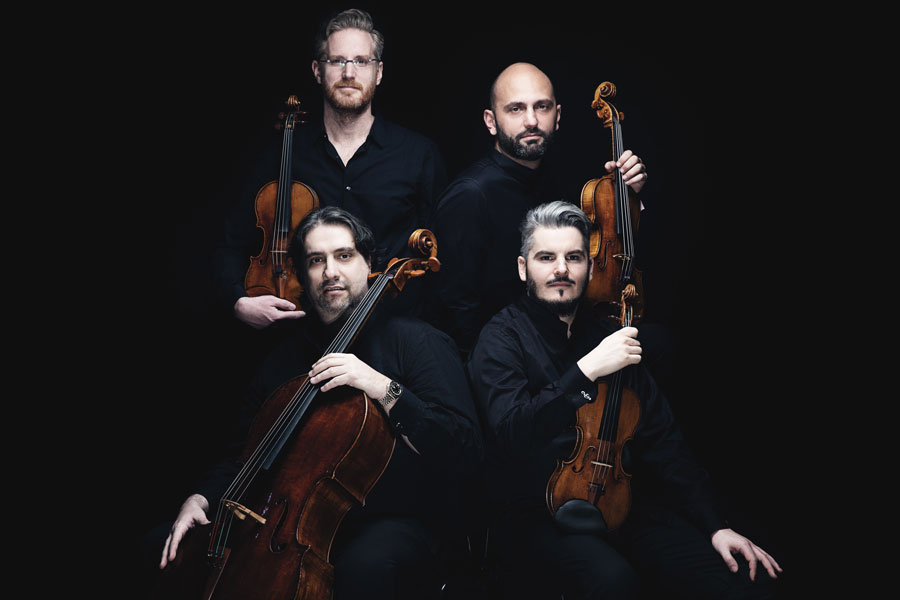The programme of the concert is built around the contrast between the person of a despotic ruler and figures of composers who want freedom of artistic exploration, which is not available under a dictatorship. Performed by Italian musicians, we will listen to works by representatives of the second Viennese School, Anton Webern and Arnold Schönberg, an impressionist quartet by Claude Debussy and Der Tribun, a very original piece by Maurice Kagel.
Three days after the concert, there is the tenth anniversary of the death of Maurice Kagel, a 20th-century composer, creator of the instrumental theatre, and the form of Hörspiel. Der Tribun belongs to the latter genre – a piece in which a fictitious dictator of an indefinite state rehearses a speech to the accompaniment of instruments. He breaks the tirade several times and starts again. Although it raises many threads, it does not convey any content – in a random way, it compiles platitudes and rhetorical figures typical of speeches of politicians, and it often contradicts itself. Effectiveness of the speech is important: the tyrant arouses admiration, enthusiasm and hope, making people identify with him. A fictitious despot could be just any autocrat known from history or a contemporary ruler. The work has a grotesque meaning, as it shows the madness of the despot – we have the impression that not only do his people need liberation, but he, too, needs to be freed from the obsessive lust for power.
The authentic figure of the absolutist ruler Napoleon Bonaparte will also be invoked. Bonaparte misappropriated the libertarian ideas proclaimed at the beginning of his quest for power. The English poet George Byron at the news of the emperor's abdication and exile to Elba wrote the Ode to Napoleon, in which he mercilessly disparaged the ruler. The music was composed by Schönberg in 1942, after Japan attacked the USA, his new homeland. He used the melody of the Marseillaise and the so-called theme of fate knocking on the door in Symphony No. 5 by Ludwig van Beethoven. The vocal part, known as Sprechgesang, is a kind of melodic speech – the singer has to recite so realistically, as if there were no music at all. The composer used the dodecaphonic technique in the work, but the music was subordinated to the expression of the text. Both works by Schönberg and by Webern, edgy and not easy on the ear, were considered by the Nazis as degenerate art and were forbidden in their homeland. Meanwhile, both composers had a huge influence on the development of music and inspired the post-war avant-garde. During the concert, we will listen to Webern’s Six Bagatelles, a work for a string quartet, which the author considered the most wonderful way of making music. The work of Debussy will follow – the first composer to break up with the aesthetics of Romanticism reigning in his time. In the year of the anniversary of Debussy's death, we will be treated to his String Quartet in G minor, a classical form, but implementing tonal effects in an innovative way, alongside various musical textures, exotic scales, changes of tonality and rhythm.
The title given to the concert by Giovanni Antonini is the title of a treatise by Étienne de La Boétie, writer and philosopher, who in the 16th century discerned the paradox of absolute rule: it is the people themselves who give power to the tyrant who then oppresses them. Creative activities and scientific research always make humans free – that is why innovative art does not tolerate totalitarian systems. Over time however, we see that dictators have passed away and art has survived.

